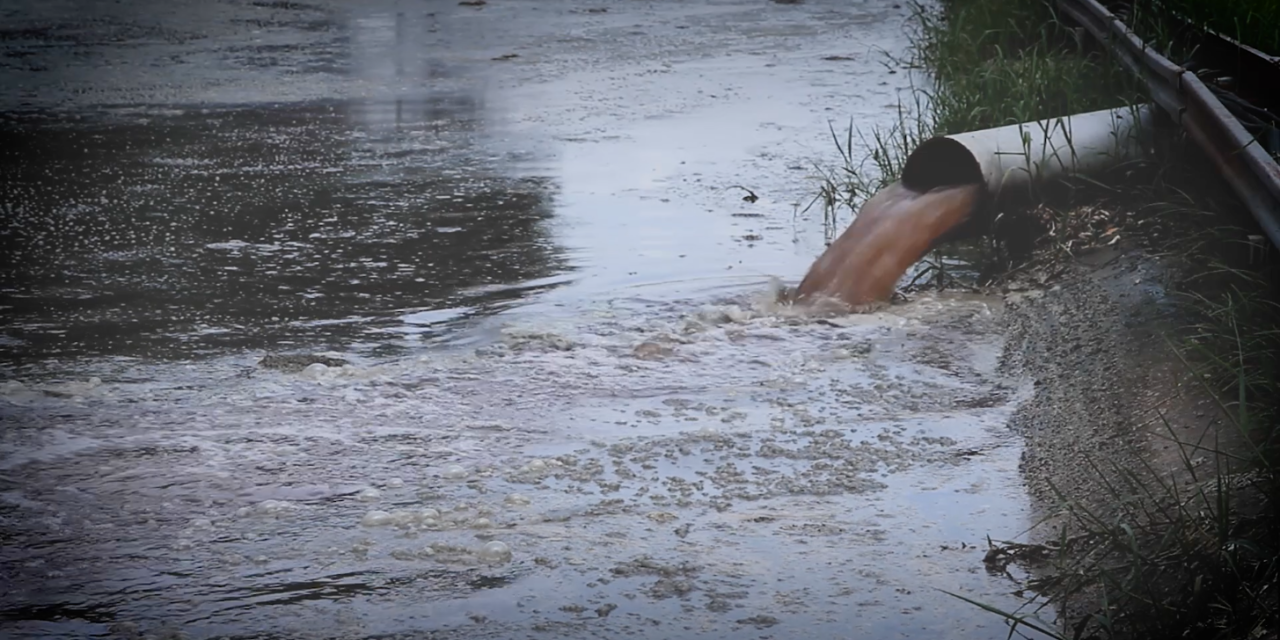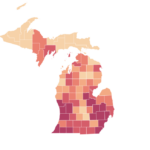It’s not just potholes.
Michigan’s outdated, crumbling infrastructure – everything from roads and bridges to sewer pipes and drinking water systems – has received a grade of “D+” from the American Society of Civil Engineers.
A report card released today by the Michigan section of the ASCE gave Michigan a grade of “C-“or worse in nine categories of basic infrastructure. Michigan tied for the worst score awarded by the ASCE among 27 states graded on infrastructure since 2013.
To no one’s surprise, the engineers’ group concluded that a lack of state funding has led to this breakdown. The “2018 Report Card for Michigan’s Infrastructure” found that much of the state’s infrastructure is reaching the end of its useful life and continues to threaten Michigan’s lakes, rivers, drinking water, and public health and safety.
The state’s infrastructure construction contractors warned that Michigan is traveling on a rocky path.
“A ‘D+’ is not a passing grade in school and is just as unacceptable for the condition of our state’s infrastructure,” said Mike Nystrom, vice president of the Michigan Infrastructure & Transportation Association (MITA). “Our state has broadly ignored our infrastructure systems for decades. Michiganders experience our deteriorating infrastructure every day and these results are unfortunately not surprising.”
An advocacy group known as Fix MI State points out that a poll they commissioned found that Michigan voters rank failing infrastructure as their top concern above all issues. With constant media reports of numerous tire blowouts or worse due to poor conditions on major roads, the infrastructure issue could play a major role in the upcoming 2018 elections for governor and the Legislature.
A team of professional engineers from across Michigan assessed the 13 categories of infrastructure to reach the cumulative grade of D+. The categories include aviation (C), bridges (C-), dams (C-), drinking water (D), energy (C-), navigation (C), rail (C-), roads (D-), schools (D+), solid waste (C+), stormwater (D-), transit (C-) and sewage (C).
In terms of volume, the Great Lakes pollution produced by Michigan’s outdated sewer systems is striking. The ASCE report concluded that, in recent years, an average of 5,750 Olympic-sized swimming pools of untreated sewage flowed into Michigan waterways. Sixty-four rivers, which drain 84 percent of Michigan’s Lower Peninsula lands, tested positive for human sewage.
Nearly 25 percent of beaches experienced closures in 2015 and 20 percent of beaches in Michigan do not meet public health protection standards. In 2015, there were 324 reported sewer overflow events discharging 16.2 billion gallons of partially treated sewage. Within the last three years, there were 1,770 state permit violations related to sewage and wastewater pollution in Michigan, according to today’s report.
The ASCE said that improvements needed include wastewater treatment plant expansion and upgrades, sewer pipe rehabilitation or replacement, expanded sanitary sewer service areas, and repair of failing septic systems.
According to the Clean Water Needs Survey for 2012 published by the U.S. Environmental Protection Agency, Michigan must invest a projected $2 billion to bring its sewage, wastewater and stormwater systems up to a dependable level of service. That equates to an annual additional cost of about $208 per person.
Other major findings of the report card include:
- The category of roads received a grade D- for the state because 39 percent of the 120,000 miles of paved roads in Michigan are rated in poor condition, with 43 percent rated in fair condition and just 18 percent rated in good condition.
- Michigan’s drinking water systems scored a D. Estimates indicate that the systems that provide tap water in Michigan need $284 million to $563 million in improvements each year to meet federal standards.
- Currently, Michigan lacks a way to inventory, operate and maintain our stormwater infrastructure. Proper stormwater management systems provide flood protection and maintain the water quality of Michigan’s rivers, lakes and streams.
- Michigan has 1,234 structurally deficient bridges, and the Michigan Department of Transportation warns that the number of state-maintained bridges currently rated in poor condition will increase by 50 percent in the next five years.
“Michigan residents, business owners and policymakers must decide how much we value the personal and economic advantages that come from a modern, safe and efficient infrastructure network,” the engineers’ report said.
“Just as you change your car’s oil regularly, we must replace pipeline(s), repair dams, fix bridges, remove old dams, and fill in potholes as needs arise.”
States that tied with Michigan for the D+ worst score assigned by the ASCE include two of the nation’s poorest Southern states, Arkansas and Louisiana.
We should be judged by the company we keep.












Pull all federal funding to Mich. until sewage stops flowing into our drinking water.